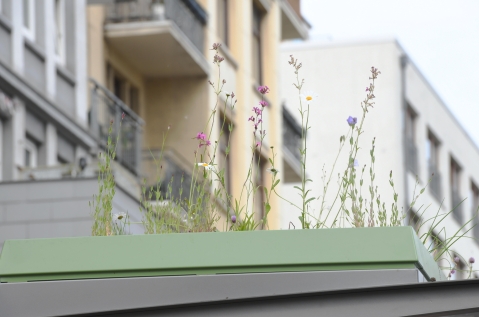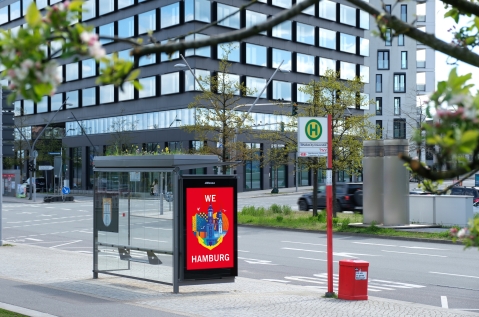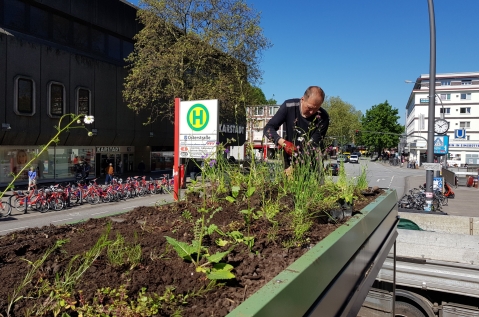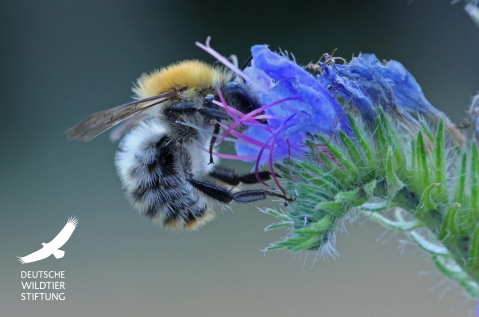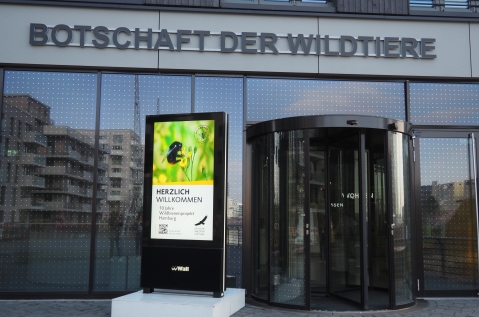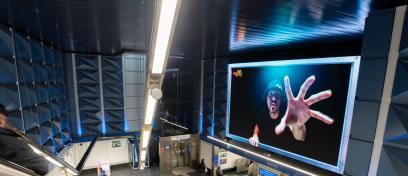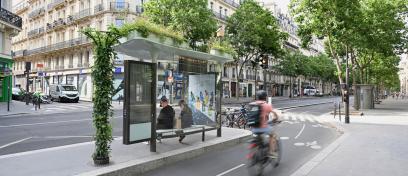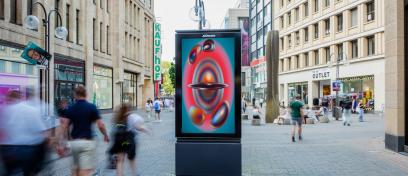A study confirms the benefit of green roofs on bus shelters for insect diversity in Hamburg.
An increase in biodiversity thanks to green-roofed bus shelters in Hamburg.
The green-roofed passenger shelters, implemented by Wall in collaboration with the German Wildlife and Flora Foundation in 2022 and expanded to seven locations in 2024, have proven to be a true haven for wild bee and wasp species in Hamburg. A recent study commissioned by the German Wildlife Foundation confirms this success.
After a full cycle of vegetation and a scientific study on insect colonisation, the results are now available and are more than promising. The plantation designed to attract the wild bees and wasps have created new habitats in areas previously devoid of insects.
Indeed, the study conducted in 2024 identified a total of 68 different species, including 41 bee species and 27 wasp species. This figure represents an increase of about 20 species compared to the last survey conducted in 2022
Among these species, three are on the early warning list of Germany's red list of wild bees, and one species of digger wasp faces direct threat at a national scale. One of the most noteworthy discoveries is the return of the Aphidius colemani, a parasitoid wasp species that had vanished from Hamburg in 1920. Over a hundred years after its disappearance, this wasp has been spotted again in two green bus shelters located at Große Elbstraße and Karolinenstraße. Experts from the German Wildlife Foundation attribute this return to climate change, which could promote the sustainable resettlement of this species in the region.
Patrick MöllerWe are extremally satisfied with the obtained results for our green bus shelters, as in a short amount of time, we have been able to see beneficial effects/impacts on insect diversity in Hamburg. It is remarkable that these seven bus shelters, collectively representing about 32 m² of green space, alone house/accommodate nearly 20% of all wild bee and wasp species in the city. Encouraged by this success, we are looking replicate this project in Berlin in collaboration with the German Wildlife Foundation.
Director of Marketing and Urban Services at Wall.
An eco-friendly and easy-to-maintain innovation
To create a green roof with ecological benefits, the design of the bus shelter and its roof has been entirely reconsidered. The structure safely supports the increased load while efficiently directing rainwater to the plants. Plant growth monitoring is required in the first year, but maintenance needs gradually decrease thereafter. Even during droughts, watering is minimal or not required at all, as the plant substrate effectively retains water. Hamburg's green roofs are a Wall innovation, offering both easy maintenance and ecological advantages.
A committed partner: the German Wildlife Foundation
Wall’s partner, the German Wildlife Foundation, provides conservation advice. It has coordinated the planting of ecologically valuable species and the thorough assessment of the project. Founded in Hamburg in 1992, this non-profit organisation works scientifically to protect threatened species and their ecosystems. It also emphasises on nature education, aiming to inspire the public to appreciate native wildlife and thereby raise awareness of the threats facing it and the need for conservation.
Project Expansion in Hamburg to Enhance Urban Biodiversity
Due to the excellent results achieved, Wall plans to extend this successful project in collaboration with the German Wildlife Foundation. Five additional bus shelters in the Hamburg metropolitan area will be equipped with green roofs of high ecological value. The exact locations of these shelters will be determined in the coming months, taking nature conservation criteria into account.
The selected sites will receive new roofs, with planting set to begin in October. The German Wildlife Foundation will be responsible for the scientific evaluation of these installations. Through this initiative, Hamburg will gain new valuable habitats for insects, particularly/ especially in densely populated urban areas.

